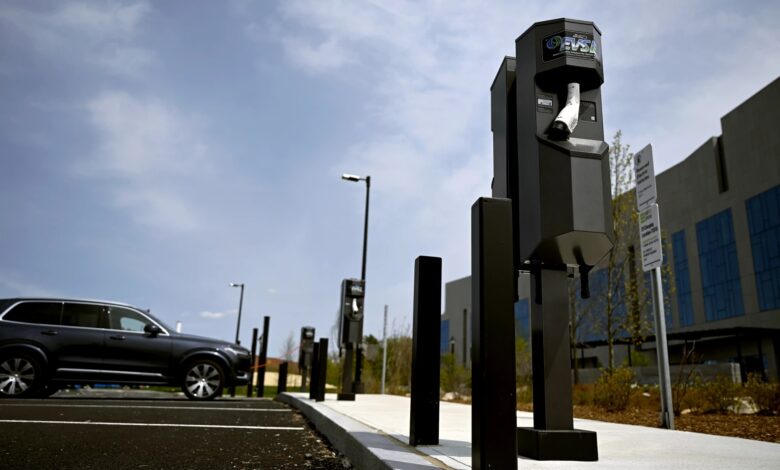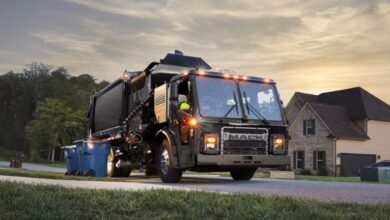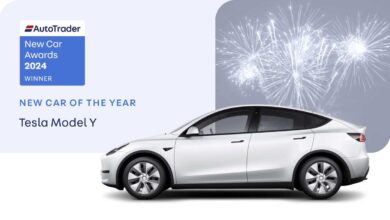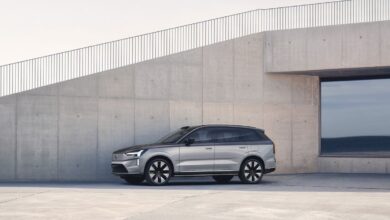Got opinions about EVs in CT? DOT wants to hear from you

While many think electric vehicles are the future, present day efforts to get to that future in Connecticut have been fraught with obstacles.
In the face of resistance from the right and the left, the Lamont administration has shelved its plan to phase out sales in Connecticut of gas-powered vehicles by 2035. In 2024’s first Connecticut legislative session, a bill that would have created a forty-person committee to study how to effect a transition to electric vehicles statewide didn’t even come up for a vote.
Now, through May 31, The Department of Transportation is surveying state motorists about their thoughts on electric vehicles and on the state’s electric vehicle infrastructure.
“We have federal funding to build out chargers throughout Connecticut, and we want to know where the public’s at,” said Department of Transportation spokesperson Josh Morgan. “Do they drive an EV? Yes or no. If they are driving an EV, what are their concerns with charging? Are there enough of them? Are they too far apart?”
The DOT has been promoting the online survey on its Facebook and Instagram pages. So far, Morgan said the DOT has received over one thousand responses. While he’s not yet prepared to discuss any response trends, Morgan said he’s heard plenty of anecdotal evidence that motorists continue to fear not being able to find a charging station on longer trips.
“It’s a term called ‘range anxiety.’ People don’t want to get stranded, especially if they’re in a fully electric vehicle and not a hybrid that will have the gasoline backup,” Morgan said.
In an effort to quell range anxiety, the federal bipartisan infrastructure law has earmarked over $50 million dollars for Connecticut’s effort to build a network of electric vehicle charging stations. Morgan said the need for these charging stations is great.
“There’s already more than 40,000 electric vehicles registered in Connecticut, but there’s only about 500 of the DC Fast chargers people want to fuel up — charge up,” Morgan said. “They want to make sure that it’s quick, convenient and accessible. And that’s where the federal program comes in and where we’re going to be investing this $50 million to build out these charging networks so people won’t have that range anxiety.”
Morgan said the plan is to start spending some of that $50 million dollars in federal money immediately.
“We’re going to have awards out this summer for alternative fuel corridors: these spots where we’ve identified along (Interstates) 95,91, (and) 84 here in Connecticut, to have more sites online with a minimum of four chargers at each one of these sites,” Morgan said.
Installing the chargers is one step, but Morgan wants to ensure they remain accessible.
“What’s really important about this program is that there’s an uptime requirement for the vendors that are going to be operating these sites. That means they can’t bag them. They can’t say they’re in maintenance. They can’t say that they’re unavailable. They have to be available. So that’s going to be really important for the public, that those charges are there and they’re actually going to be working.”
But what if Connecticut and other states build charging stations and not enough people come? According to Cox Automotive, EV sales were down 15% in the first quarter of 2024. At the same time, companies like Ford, GM, Mercedes and other car makers announced plans to scale back their EV production plans. Morgan said he doesn’t see these facts as indications that future prospects for EVs are dimming.
“We view it as not a matter of ‘if’ but ‘when’ the EV revolution comes. So, we want to make sure that we’re prepared.” Morgan said.
Morgan said the DOT considers the survey a key part of that preparation.
“It’s just really a good data point that will help inform when we update our plans that we have to submit to the Federal Highway Administration in August,” he said.
This story was first published May 29, 2024 by Connecticut Public.


















